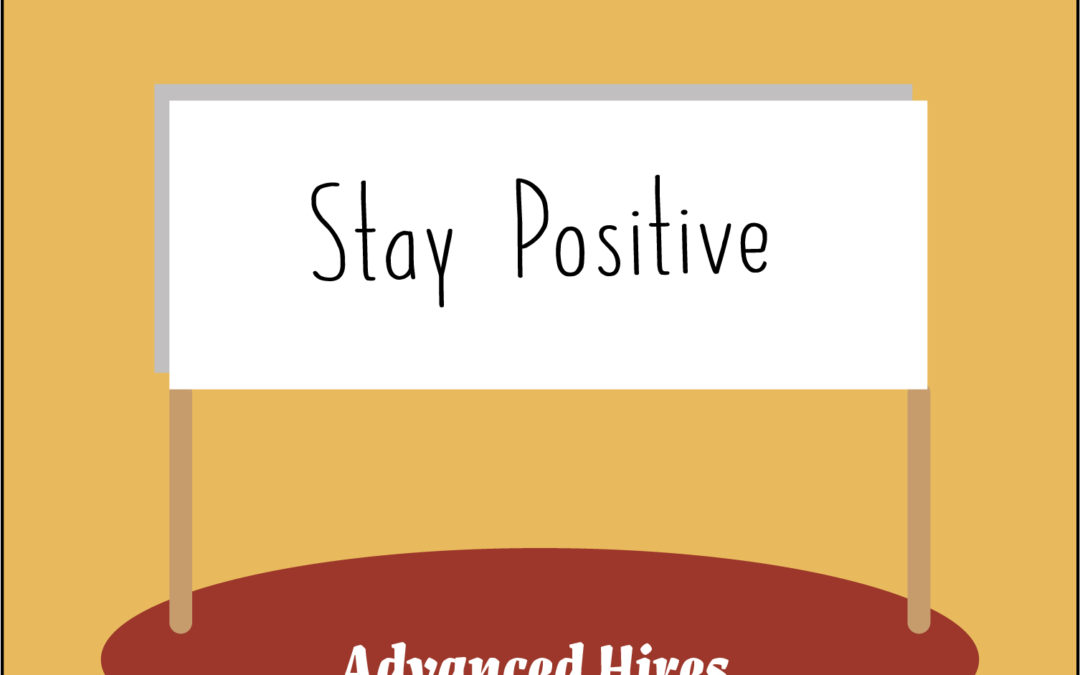Having a positive mindset can be extremely beneficial for your attitude, outlook, and mental health. Positive thinking doesn’t just mean you need to force yourself to be happy and upbeat, it actually means that you are showing yourself kindness, building your skill sets, and creating healthy habits in your personal AND professional life. Learning how to think positively can be a really helpful skill that can assist in your work development and is especially helpful during the current climate where we see lots of uncertainty and difficulties arising from the pandemic and quarantine.
The benefits of positive thinking provide enhanced ability to build skills and develop resources to use throughout your life. The skills last longer than the emotions that they bring up. For example, a person who exercises a lot in a way that brings them joy is experiencing good emotions in that moment, but the activity itself is also providing them with social skills (working out with a team or instructor), physical skills (getting stronger), and creative skills (using their body in interesting and unique ways to get an athletic task done). Negative emotions do the opposite of this and tend to bring you down, removing or hindering any skills you might otherwise be using.
Positive thinking might be easier said than done, but here’s some concrete ways you can start implementing positive thinking in your life and workplace. By doing these things, you can get into the habit of positive thinking and will likely find an increase in your work productivity and overall mood:
- Meditation: there are many free apps online that you can download and use for guided meditation, or find some on YouTube. People who meditate daily display more positive emotions than those who do not and build more long-term skills. Meditation can make you more mindful in your work, have a stronger purpose, and be more connected with your social support.
- Writing: write down one positive thing a day about your work, job, or personal life. Keep doing that for a while and you will see a difference in the way you are thinking and feeling. This is also helpful for gratitude journaling.
- Schedule Play Time: you might be working too hard and too much. When was the last time you relaxed, or did something fun? Make sure you are giving yourself permission to smile and block off some time to just have fun with no strings attached.
- Reward Yourself: when you do something great at your job or in your personal life, if you make progress towards a goal, or even do something small that makes you feel proud, make sure you are celebrating that and acknowledging it. This will make you feel good and positive, but it also comes with the benefit of having a list of successes you’ve done at work the next time you ask for a raise!
Ultimately, periods of positive emotions and hopeful thinking can create possibilities for you to develop important and beneficial life skills in your work and your personal life. When you begin to create skills that blossom into useful talents later on, you will see a change for the better in your activities and thought process.





